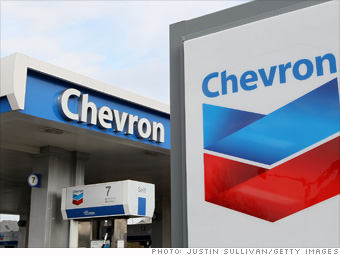
Some businesses save money on taxes by logging their biggest profits in low-tax countries. But like Exxon, Chevron has little choice about where it can extract oil. Thanks to the billions it sends overseas, Chevron faced an effective income tax rate of 43% last year.
It's perfectly reasonable, under the tax code, for a company with multinational operations to reduce its U.S. tax bill to $0, said Eric Toder, an institute fellow at the Tax Policy Center.
"In order to avoid having profits taxed in two locations, the host country gets the first bite of the profits," he said.
Think U.S. companies should be paying the U.S. government first? Take it up with lawmakers, not the oil companies.
"There are not as many loopholes in the corporate tax code as people think, and there are legitimate reasons for which these companies pay as much or as little as they do," said Scott Hodge, president of the Tax Foundation. "If anybody complains, they should not blame the companies, they should blame Congress -- they wrote the tax code.
NEXT: General Electric: -$1.1 billion
